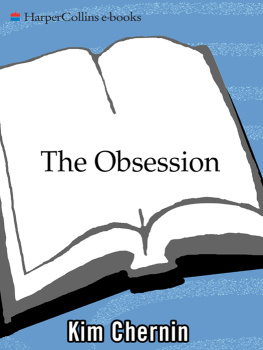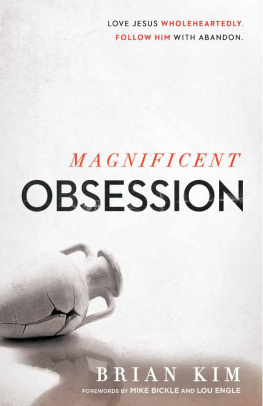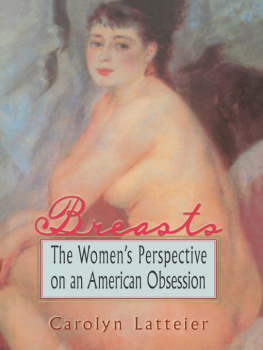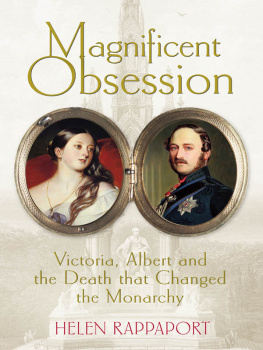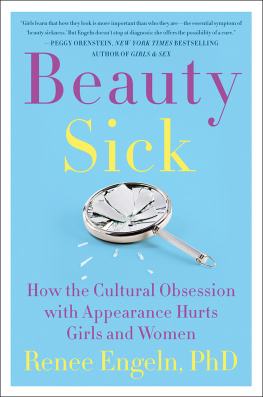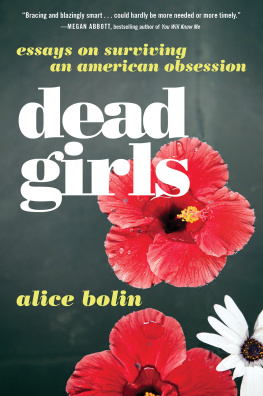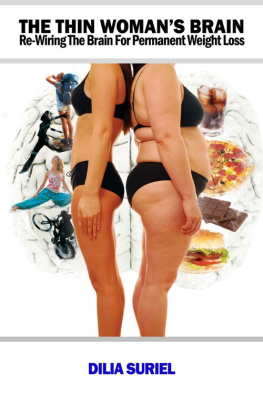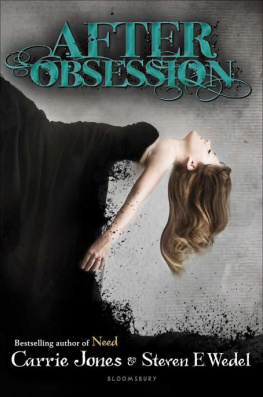For Lillian
Contents
Many people have influenced and encouraged my writing of this book and I am delighted to have an opportunity to acknowledge them.
Susan Griffin suggested that I begin this project and patiently overcame all my resistance to it. She discussed the ideas with me as they were evolving, shared with me her own work on pornography, sharpened my cultural vision, read and edited the final manuscript. The magnitude of the thanks I owe to her must be implied rather than expressed.
Kirsten Grimstadt came across an early version of this manuscript at a time when I had abandoned the project. She encouraged, argued, provoked and finally inspired me back into writing it. She has fought for the book at every stage, in every possible way, has seen it through each successive version and painstakingly sharpened its vision and expression. As an editor and a friend, she has made an invaluable contribution to my life and work.
Roz Parenti read and criticized this manuscript, made important suggestions, encouraged me, believed in me, and shared in every phase of this writing with me. Our friendship, which runs back so many years, has brought me richness and depth and joy.
Michael Rogin read, criticized and encouraged this work as it evolved. Without him it would not be what it has become. Through the conversations, debates and discussions we have shared over many years he has become an essential part of my life and my development.
Lillian Rubin plays a central part in all work I undertake. We discuss everything together and have shared our intellectual and personal lives for many years. I would not be the person I am today without her.
My mother, Rose Chernin, has encouraged me all my life to become a fully developed woman, fully engaged with the world. Her political life, her unflagging energy, and her love for people have been the best possible inheritance to hand on to a daughter.
To my own daughter, my gratitude is due for the understanding she has shown of the many hours I have spent away from her, involved with my work. It is my hope that she will now be able to exercise this same opportunity for self-development fully and capaciously in her own life.
Valerie Miner patiently listened to every word of this book. As a perceptive critic, with a gentle severity and the highest possible standards of style, she has influenced me greatly and has become a dear friend.
Adrienne Rich has given me a careful, detailed, and provocative reading of the manuscript. I have felt deeply the influence of her contribution upon my thinking and writing.
Tillie Olsen argued with me and then guided me toward essential books, the existence of which I would not have known about without her. Her life and work, her presence, and her understanding of silences have inspired and sustained me.
At a particularly difficult stage in my writing I came across a brilliant essay by Sandra Gilbert on anorexia nervosa. Her writing proved to be a confirmation of the interpretations I was then formulating. It encouraged and fortified me. Although I did not then know her, I owe her a hearty debt of gratitude.
Luther Nichols was one of the earliest readers of this manuscript. For his support, enthusiasm, and encouragement I cannot say sufficient thanks.
Grace Rutledge performed miracles as a typist. Her quick understanding and perceptive mind made it possible for her to decode all the scribbles and comments written in the margin. For her late nights and early mornings, my deepest gratitude.
My agent, Diane Cleaver, never loses heart. She encourages, believes, advises, and consoles. She was always there when I needed her.
Hugh Van Dusen and Cynthia Merman at Harper & Row are a writers dream come true. They make the frightening business of a first books publication seem a joyful and exciting venture between friends. For this I cannot begin to thank them sufficiently.
Finally, my thanks to the women I interviewed and to all those who spoke spontaneously to me about their obsession. For their honesty and courage, their insight and understanding, I shall be indebted for the rest of my life.
I have always been fond of introductions written some good ten years after a books publication. The author sits down to reflect on the earlier self who wrote the book. Then she gets to set down the books history, for the book has, during the intervening decade, acquired a story of its own. Originally created by the author, the book has since acquired the capacity to create the author, translating her (as in my case) from an unknown, unpublished writer into a person invited to hold forth in public about her most secret obsession.
The Obsession, first written in 1980, published in 1981, eventually became the first in a Hunger Trilogy, three books about women, food, the female body, womens identity and quest for identity. As first in a series, The Obsession presented particular difficulties for its author, that unknown, unpublished person I then was.
Who was I to be writing this book? Certainly I was not an expert in anything, unless one could say I had become an expert in suffering the obsession I was about to describe. Why did I think I had something to say? Had I spent years in research, had I gathered, weighed, sifted, and considered extensive data? Why did I, a woman emerging from more than twenty years of struggle with an obscure condition not yet firmly established as an eating disorder, suppose I could cast light among shadows?
In 1980, or perhaps it was 1979, when I began to write about the suffering women experience in relation to their bodies, there was no popular consensus that a suffering of this type actually existed. Looking back after thirteen years, I find it hard to reconstruct the state of mind in which I, along with most women in our culture, imagined my suffering to be a unique, individual shame. The obsession with losing weight, regulating diet, monitoring the body, measuring it, weighing it, scrutinizing it, punishing it, rewarding it on occasion for having succeeded in reducing itself, was then not yet considered an obsession. It was popularly thought of, if thought about at all, as yet one more form of womens vanity, a superficial topic, not one a serious (although unpublished) writer would consider a worthy subject for a book. To begin to write about it, one had to first convince oneself to reveal what might turn out to be a bizarre, private obsession, an exaggerated response to petty concerns about food and weight. To call it an obsession, to write the name boldly on the title page of the manuscript, to claim that the experience of obsession with food and the female body was typical of women, a profound, largely unrecognized form of psychological suffering, of considerable cultural significance, was to make a claim that felt grandiose. If, against this persuasion, I nevertheless persisted in writing, it was because the obsession itself seemed to require some form, a formal utterance, a struggle for articulation, if I was to succeed in overcoming it.
I was then forty years old. Forty and obsessed with a strange suffering that had begun when I was seventeen; forty and by no means an expert in anything, although I had spent the previous twenty-some years trying to puzzle out the reasons for this preoccupation that at times took over my life and threatened to make everything else in it (marriage, motherhood, divorce, study, writing) irrelevant. Should I have solved the problem before I dared to write of it? Could the writing become part of the struggle for a solution?
These questions, these doubts and uncertainties, which were never put to rest during the writing of the book, were awakened again at every step in the books emergence into the world. At first read and rejected by (I think it was) thirteen publishers, who considered the obsession the authors own private nightmare, the manuscript was then shut away for a time before that unresolved obsession itself brought me back to work on it. I now gathered and put in place the statistics and the soft, often anecdotal data (conversations, impromptu interviews, newspaper articles, overheard comments) which could justify my claim that I was not alone with this obsession, that it had cultural meaning. The data helped make my case; the book was accepted for publication, a small printing was planned, no budget was created for publicity, the book inched its way out into the world through the routine channels, was sent out without fanfare to radio and television talk shows, a handful of newspapers, then we all sat back to wait for it to be resoundingly ignored.

